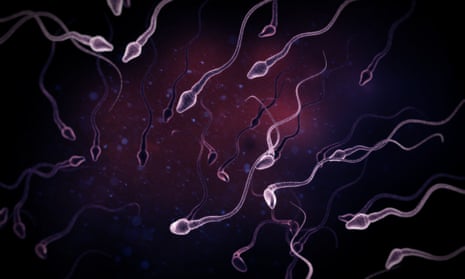There is nothing like the image of deformed sperm to grab the attention of male politicians. The tentative link between male fertility and pollution has been put forward by medics in China and in a world where heterosexual men still make most of the decisions, I hope it makes pollution a personal priority for a few of them. It’s only one bit of research, among hundreds of more definitive studies into proven health conditions linked to pollution, but the world may become a slightly better place as a result.
When I was first elected to the London Assembly 17 years ago, we were told that air pollution was yesterday’s issue and the technological solutions were rolling off the production line. I wasn’t convinced and argued that we needed to change our lifestyles by driving less, but very few in the media, or politics, saw this as a priority. That changed as the medical evidence mounted and the technological fix failed to deliver. The number of premature deaths linked to air pollution escalated dramatically, with links to heart disease, dementia, type 2 diabetes, kidney failure, autism, as well as asthma. Air pollution kills, but still we drive.
The chancellor’s budget has finally seen us start on the path to phasing out diesel and Philip Hammond clearly sees a future where we are ferried around in driverless, electric cars. It’s a new phase to the technical fix, after the failure of the car manufacturers to stick to EU rules by scamming the tests and fitting defeat devices on their vehicles. Perhaps I’ve grown too cynical, but won’t the middle classes have their driverless cars circling around town while they attend meetings in office blocks with restricted parking? Also, electric vehicles aren’t entirely pollution-free even if charged with renewable energy. What will be done about the particulates (PM 2.5) that come off the tyres and brakes, the tiny grains that get into our bodies and mess with hearts, brains and testicles?
As an ex-archaeologist, I am well aware of the link between environmental degradation and the collapse of civilisations. For example, one early theory linked the decline of the Roman Empire with its increasing use of lead pipes. A technology that benefited millions of city dwellers also brought them damage to the brain and nervous system, the stomach and the kidneys. Lead pipes can also cause high blood pressure and other health problems. Sound familiar?
According to scientists at the Hebrew University of Jerusalem, sperm counts among men in the west have more than halved in the past 40 years and are currently falling by an average of 1.4% a year. The World Health Organization now recognises the problem but hasn’t identified a specific cause. So, it may, or may not, be down to pollution, plastics or pesticides, but I can’t help feeling that we will try our best to ignore any proven causes if they get in the way of modern life.
Driving has become an essential human right, like shopping on Black Friday and perfectly shaped vegetables at Christmas. These are apparent signs of progress and civilisation, the fruits of consumer technology designed to make us happy. It is hard to argue otherwise in polite society and as George Monbiot has said, that should make us worried.
This consumerism is also fuelling our experiment with climate change, which is a huge gamble with the realities of living on a planet with finite resources. Climate change may seem an abstract idea, far less real than a coughing fit on a polluted London road, but its impacts on our economy and way of life could be as devastating as the impact of a volcanic eruption on the Minoan civilisation – it didn’t end well.
So let’s not sigh over disturbing episodes of Blue Planet 2 but do nothing to change our lifestyles. Let’s not consume the news of hurricane devastation with popcorn and fizzy drinks on the side. Humanity must accept that our future wellbeing is irrevocably linked to the planet’s health and perhaps deformed sperm will be the tipping point.

